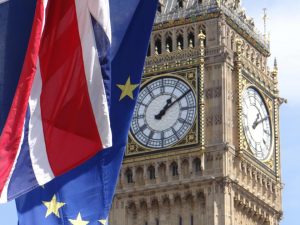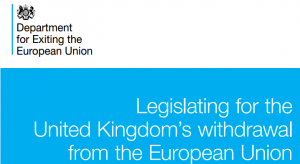By Prof Phil Syrpis, Professor of EU Law (University of Bristol Law School).
 The stated aim of the, then Great, Repeal Bill was to provide clarity and certainty for citizens and businesses, and to ensure a functioning statute book on exit from the EU. The key statement of principle in the White Paper was as follows: ‘In order to achieve a stable and smooth transition, the Government’s overall approach is to convert the body of existing EU law into domestic law, after which Parliament (and, where appropriate, the devolved legislatures) will be able to decide which elements of that law to keep, amend or repeal once we have left the EU. This ensures that, as a general rule, the same rules and laws will apply after we leave the EU as they did before’ (for analysis, see here).
The stated aim of the, then Great, Repeal Bill was to provide clarity and certainty for citizens and businesses, and to ensure a functioning statute book on exit from the EU. The key statement of principle in the White Paper was as follows: ‘In order to achieve a stable and smooth transition, the Government’s overall approach is to convert the body of existing EU law into domestic law, after which Parliament (and, where appropriate, the devolved legislatures) will be able to decide which elements of that law to keep, amend or repeal once we have left the EU. This ensures that, as a general rule, the same rules and laws will apply after we leave the EU as they did before’ (for analysis, see here).
However, the continuity provided by what is now the European Union (Withdrawal) Bill, published last week, must be seen in the context of the reality that leaving the EU will also require major constitutional and policy changes in a relatively short, and currently uncertain, time frame (see here). After all, the Government’s aim is that, as a result of Brexit, the UK will be able to decide which parts of EU-derived law to keep, and which to amend or repeal. A number of Brexit Bills, which will change the law in relation to, among others, immigration, trade, customs, agriculture and fisheries, were promised in the Queen’s speech. The clarity and certainty promised in the White Paper, which at first glance appear to provide comfort to citizens and businesses concerned over the effects of Brexit, are more elusive than ever. (more…)









